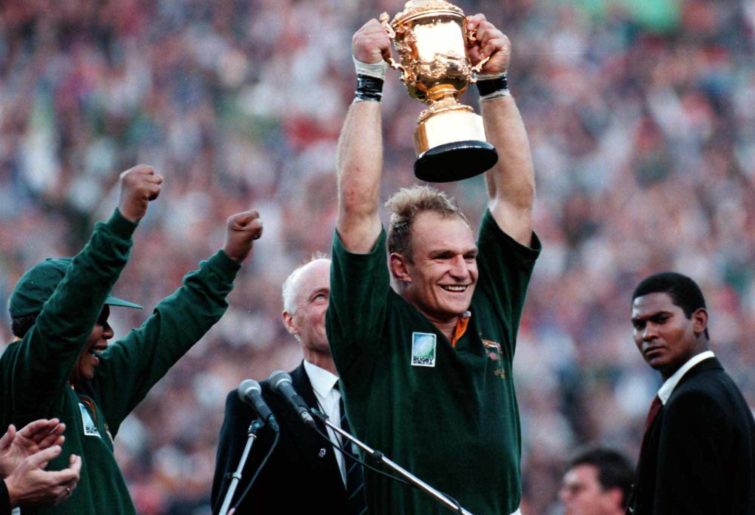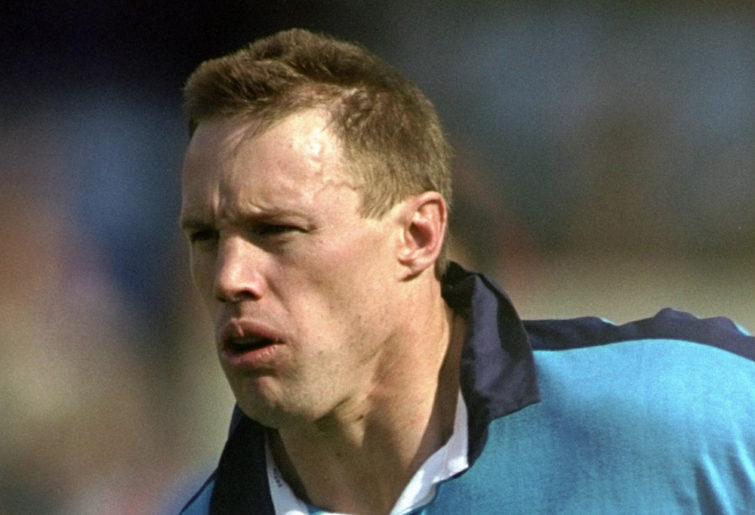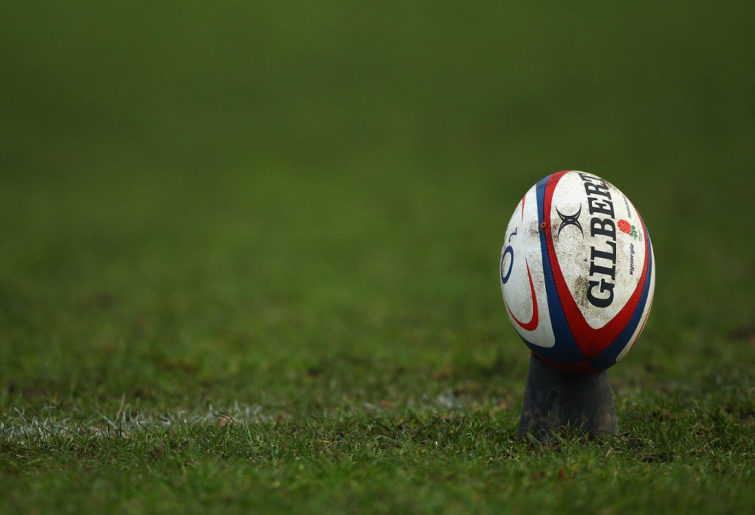March 1st, 1996. Friday night. First day of autumn in Sydney. Rugby history is about to be made.
The New South Wales Waratahs are set to face Transvaal in Round 1, Season 1 of Super 12.
Across the Tasman Sea, the Auckland Blues and Wellington Hurricanes have just partaken in New Zealand’s first ever game of professional provincial rugby. Now it’s Australia’s turn.
Over 30,000 spectators have descended on the Sydney Football Stadium. The players stream onto the field. Anticipation reaches fever pitch.
New South Wales get first crack at the visitors with an attacking scrum 22 metres out, 15 in from touch. Nobody would recall what happens next better than Waratahs winger Alistair Murdoch.
“I noticed that my opposite winger was too far inside me,” he says.
“I call for a double miss and, this time, manage to convince everyone to do it.
“I receive the ball and get outside him. Then I come inside on the fullback, stand him up, and score the first try.”
Murdoch pumps his right fist into the air as his teammates swarm around him. The crowd, meanwhile, explodes into rapture.
Welcome to Super Rugby, Sydney. Welcome to Super Rugby, Australia.
Murdoch’s early try jump-started a Waratahs rout that evening. Matt Burke grabbed a double and kicked five goals, while Tim Gavin also dotted down to give the men in sky blue a bonus-point 32-11 victory.
The Waratahs probably entered that match as underdogs. Transvaal had a formidable squad containing seven players from the Springboks’ World Cup-winning team of the previous year.

(AP Photo / Jan Hamman)
Murdoch certainly knew that his team was in for a massive first-up challenge.
“We were playing against a South African provincial side that had effectively just won the World Cup, so you didn’t think you were going to automatically turn up and win,” he says.
“But if we put it all together we were confident.”
And that confidence paid off. The Tahs got their season off to a winning start, and tens of thousands of their fans journeyed home wearing ear-to-ear grins.
Result – tick. Crowd – tick. Experience – also tick.
Murdoch recalls that night being an event dwarfing any Waratahs fixture he had experienced in the past.
“There was a lot of promotional work to get it up and running,” he says.
“You actually knew there was a rugby game happening on a Friday night!
“Previously, unless you were an absolute rugby fanatic, you probably wouldn’t even know when Waratahs games were taking place.
“The administrators were trying to broaden the appeal of the game, because it was now professional and they wanted to get more punters through the turnstiles. They took things to another level and it paid off.”
Naturally, the beginning of professionalism also meant that the players needed to step things up. More training, more travel and more commitment in general was required.
Even with his rugby duties ratcheted up, Murdoch was still able to juggle these with his day job.
“The best thing back then was that the managers didn’t really know what they were doing,” he says.
“I was still able to work as a lawyer and also have a professional rugby contract.
“We used to train at four o’clock, so I left a little bit early from work and off to training I went. I effectively had two jobs for my first couple of years, which was nice.
“Of course, that changed a year or two afterwards when they got wise and decided that they needed us full time. I’ve got to say, initially there was a lot of naivety when it came to professionalism.”

(Credit: Jamie McDonald/Allsport)
Tours to South Africa were the obvious exception to marrying rugby with outside work. Murdoch and the Tahs did not have to wait too long in ’96 for their first safari.
They travelled to Cape Town for Round 2 where Murdoch scored again in the Tahs’ 30-22 win over Western Province.
Northern Transvaal edged them the following Saturday, but a week later the Waratahs came home and thumped the Brumbies in Sydney. At 3-1, NSW were looking every bit a finals-calibre team in the early going.
But they could not maintain their momentum. A mid-season slump of four losses in five matches led to a mediocre 5-6 finishing record.
“We started like a house on fire,” says Murdoch.
“Then we stuttered in the middle of the season and ended up missing out on the finals.
“It’s hard to put your finger on why you lose games during the season. As a back I’ll always blame the forwards and the forwards will always blame the backs. We did have a few injuries at crucial times.”
Their Round 10 clash against Auckland at Eden Park probably best sums up their campaign.
“We were up 20-0 after 20 minutes and I thought, ‘We are going to win this,’” says Murdoch.
“Then we bombed a try. Someone dropped the ball – I’m not going to mention who it was – with the line beckoning. That would have put us up by 25 or 27, and I think the game would have been over then. We ended up losing 56-44.”
Murdoch also feels that home teams had a bigger advantage in those days. He argues that at the advent of professionalism teams were less accustomed to the burden of travel, which led to struggles on the road.
The stats back this up. Three of the four semi-finalists in ’96 had six – rather than five – home games. All four also had a run of three (or more) consecutive home games.
The Tahs, on the other hand, had only five home games and not once did they have back-to-back matches in Sydney.
Spilt pill in Auckland aside, Murdoch was a shining light for his team. Long-time rugby fans will remember him as a sizeable winger. Not overly tall at 5’10”, but a bulky frame helped him to tip the scales at around 95 kilos.
Big wingers are much more prevalent a generation later. But back in those days the man nicknamed Rupert was an intimidating presence with his beefy chest and muscular thighs. He was not the type of player, though, who simply used his girth to bludgeon his way through defenders.
“I’d say I was a combination of pace and power rather than straight out power,” he says.
“I used to run around people rather than through them.
“I would try to get away from people by running around them or inside them, but if they got close to me I gave them a good fend. I never tried just to line people up and run into them.”
Murdoch’s athletic gifts were harnessed to devastating effect during his pair of Super 12 seasons. Some nights he was irresistible, such as in Round 11 of ’96 when he scored a hat trick of tries against the Hurricanes.
He had a similar day out in the corresponding round a year later, scoring a brilliant brace against the Blues. It was not enough, though, for the Tahs, whose loss that day dropped them to a disappointing 4-7.

(Photo by Matthew Lewis/Getty Images)
That game turned out to be Murdoch’s Super 12 swansong. He had been a part of the Waratahs’ set-up for eight seasons at that point and had also fulfilled his ambition of representing Australia having played two Tests: one each in 1993 and 1996.
However, he felt that his chances of a national recall were slimming with a pair of youngsters claiming ownership of the Wallabies’ wing jerseys.
“I could see that Joe Roff and Ben Tune were establishing themselves as the wingers in the Australian side,” he says.
“Obviously I had hopes to play in more Wallaby games but I felt that maybe the door was closing.
“I also just felt that perhaps it was time to move on to pastures new. I was 30 (years old), and I felt like if I didn’t do it fairly quickly I wouldn’t have the opportunity.”
Murdoch moved on to England where he would play for another ten seasons: three at Bedford, two for Worcester then five with the Exeter Chiefs.
He finally hung up his boots in 2007 aged 40. But Murdoch was far from done as an athlete.
“I was always good in the gym,” he says.
“Even when I was playing I used to out-bench the front-rowers, which they used to get disappointed about.
“So I knew I was good at benching and I thought, ‘I’m gonna do something about this’. I was always a competitive soul.”
So compete he did – in power-lifting. Just like with rugby, he turned out to be pretty good at it.
Beginning in 2011, Murdoch won three consecutive World Drug-Free Powerlifting Federation championships. Powerlifting involves three components: squats, dead lifts and bench press. These days Murdoch still competes in the latter in masters competitions.
During business hours he works as a financial adviser in London, assisting companies and people with investments, mortgages and pensions.
Banking tries was once Murdoch’s specialty. In just 18 career Super 12 games, he crossed for an impressive 13 five-pointers. None more valuable, arguably, than try number one for the Waratahs in ‘96.
Murdoch was a sight to behold that night with legs pumping and neck muscles bulging as he shred through the Transvaal defence.
His score sent a mighty ripple through the SFS crowd, and perhaps even beyond. The birth of professional rugby in Australia had just got off to the perfect start.































































































